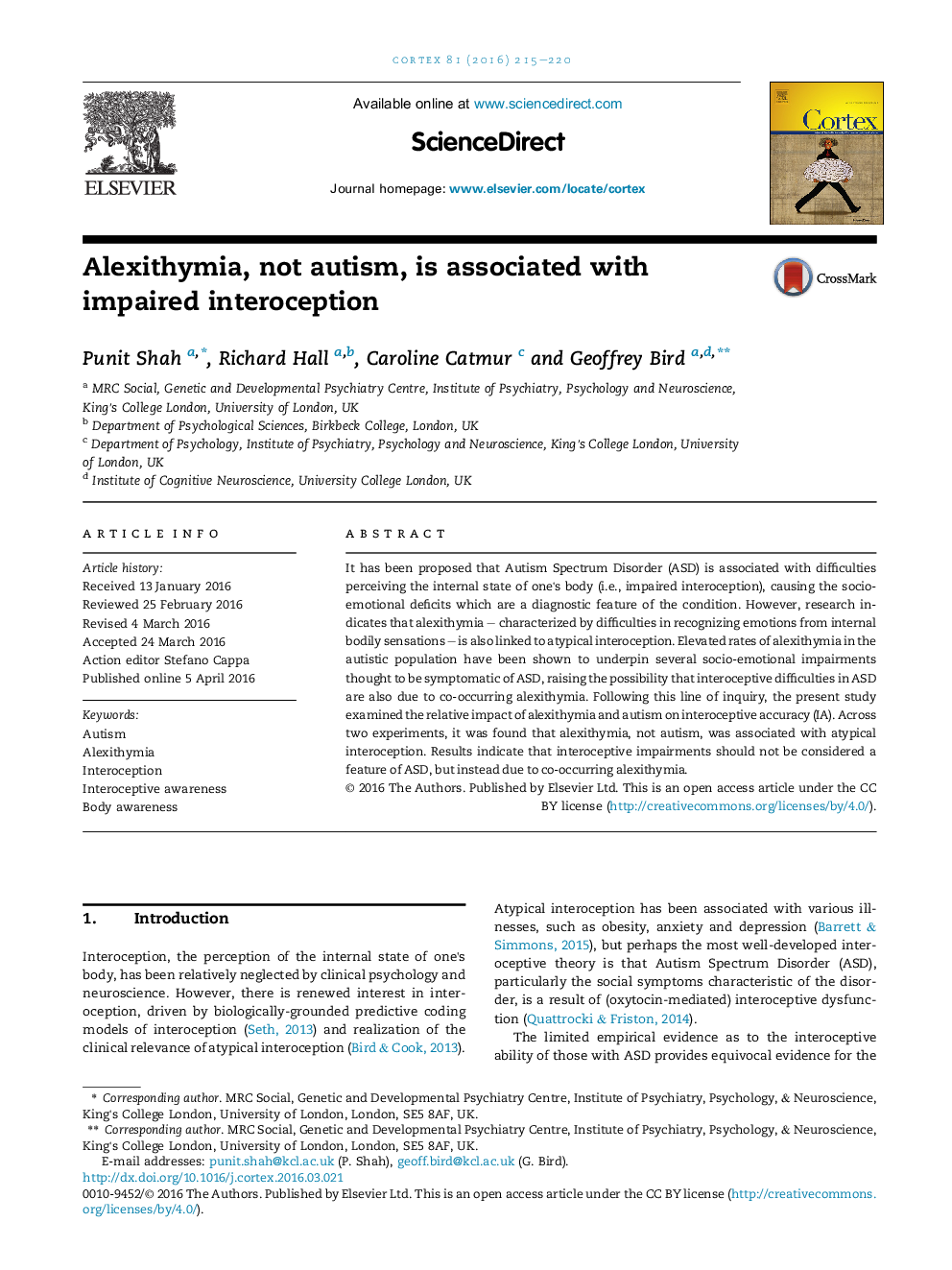| Article ID | Journal | Published Year | Pages | File Type |
|---|---|---|---|---|
| 7312902 | Cortex | 2016 | 6 Pages |
Abstract
It has been proposed that Autism Spectrum Disorder (ASD) is associated with difficulties perceiving the internal state of one's body (i.e., impaired interoception), causing the socio-emotional deficits which are a diagnostic feature of the condition. However, research indicates that alexithymia - characterized by difficulties in recognizing emotions from internal bodily sensations - is also linked to atypical interoception. Elevated rates of alexithymia in the autistic population have been shown to underpin several socio-emotional impairments thought to be symptomatic of ASD, raising the possibility that interoceptive difficulties in ASD are also due to co-occurring alexithymia. Following this line of inquiry, the present study examined the relative impact of alexithymia and autism on interoceptive accuracy (IA). Across two experiments, it was found that alexithymia, not autism, was associated with atypical interoception. Results indicate that interoceptive impairments should not be considered a feature of ASD, but instead due to co-occurring alexithymia.
Related Topics
Life Sciences
Neuroscience
Behavioral Neuroscience
Authors
Punit Shah, Richard Hall, Caroline Catmur, Geoffrey Bird,
